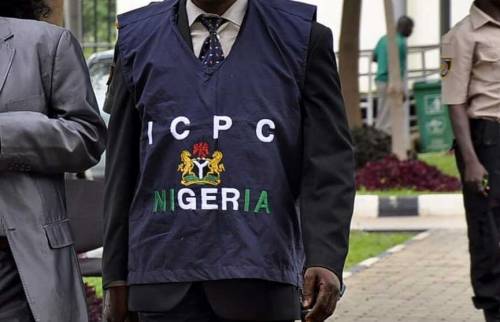A corrupt judiciary is regarded as one of the indicators of a “failed state,” according to the Failed States Index. ICPC’s 84-page report, entitled, ‘Nigeria Corruption Index: Report of a Pilot Survey 2020,’ concluded that lawyers gave N9.45 billion as bribes to judges. By no ordinary happenstance, the study, which surveyed the judicial system between 2018 and 2020, coincided with the 2019 general election, both the run-in and the aftermath.
The Independent National Electoral Commission said there were 809 pre-2019 general election cases. As of June 2019, 800 cases were still in court. At that time, INEC had withdrawn 70 certificates of return and awarded them to new winners on court orders. Through such litigation, desperate politicians and their legal teams work in cahoots to undermine the cause of justice, deploying “stupendously high amounts of money offered as bribes to judges by lawyers handling high electoral and political cases,” the report noted.
Corruption, says OECD, decreases public trust in justice and weakens the capacity of judicial systems to guarantee the protection of human rights, and it affects the tasks and duties of the judges, prosecutors, lawyers, and other legal professionals. Judicial corruption gained notoriety following the noxious 2007 general election. The chief beneficiary, the late President Umaru Yar’Adua, admitted that the polls were fraudulent. The polls instigated tons of litigation, the pretext for lawyers to exploit the system. Lamenting the scourge, the late Supreme Court Justice, Kayode Eso, referred to the judges who adjudicated the cases as “billionaire judges” because of the bribes they received from lawyers representing litigants. Another retired JSC, Samson Uwaifo, admitted there were corrupt judges in the system. He called it right, saying, “A corrupt judge is more harmful to society than a man who runs amok with a dagger in a crowded street.”
Globally, Nigeria ranks at the very base of corruption. In Transparency International’s annual Corruption Perception Index, it repeatedly ranks near the bottom. Out of 180 countries assessed, Nigeria rated 148 in 2017, fell to 144 in 2018 and 146 in 2019. A combined survey by the National Bureau of Statistics, the UNODC and UKaid in fourth quarter 2018 estimated that the chances of encountering bribery in the judiciary was 27 percent; only the police and power sectors had higher likelihood of corruption. Another report by the NBS, which said Nigerians paid $4.6 billion in bribes to public officials in 2017, stated the police and judiciary had the largest proportion of total bribes paid at 33 percent and 31 percent respectively.
It is not that efforts to tame corruption have not been made, but it is just that they have mostly fallen flat, particularly because graft is a pandemic in Nigeria. Although their modus operandi triggered controversy, State Security Service operatives raided the homes of suspected corrupt judges in 2016 and seized $800,000 in total. Some of the judges were later retired by the National Judicial Council. The Economic and Financial Crimes Commission has put several judges and Senior Advocates of Nigeria on trial on allegations of bribing judges. In 2018, the EFCC accused the head of the Code of Conduct Bureau of soliciting bribes. Earlier in 2011, Ayo Salami, then the President of the Court of Appeal, dragged Aloysius Katsina-Alu to court, accusing the then Chief Justice of Nigeria of attempting to pervert justice in the long-running 2007 Sokoto governorship election case. In a particular cause in 2017, the ICPC arrested a Court of Appeal Justice for soliciting a bribe of N200 million to fix a 2015 Senate election case in Imo State.
In fact, in 2018, the NJC recommended two judges – Rita Ofili-Ajumogobia and James Agbadu-Fishim — for the sack after they were probed for corruption. Between 2009 and 2014, the NJC disciplined 64 judges for various offences. Their punishments might not have deterred others. During her 28-month tenure as CJN, Mariam Aloma-Mukhtar said she inherited 139 petitions against corrupt judges; 198 other petitions were filed during her term, which ended in November 2014. That is scandalous stuff.
The credibility of the Nigerian judiciary is under a dishonourable assault. This endangers the epithet awarded to the judiciary as the last hope of the masses. With this, litigants will not repose full confidence in the judiciary.
Although it is an independent arm of government in a democracy, it is subject to checks by the legislative and executive arms. The two other arms, especially the executive, should wake up and stop treating the congenital deficiency with levity. At this point, the ICPC, the EFCC and police have to redouble their focus on judicial corruption. In these days of Bank Verification Number, National Identity Number and other anti-fraud mechanisms, they should deploy forensic technology to trace bribe money in the system.
It is argued that when justice can be bought, it is worthless. Equality before the law should not be for sale to the highest bidder; rather, it is a living principle that is implemented by designated institutions and must be subject to continuous oversight and scrutiny. The NJC should beam its searchlight on judges who have a penchant for issuing frivolous injunctions, who delay litigation, resume late, go on endless holidays and live above their income. The law should be strengthened to mandate all categories of judges to declare their assets before assuming office and at the point of retirement. The NJC should stop retiring corrupt judges, but dismiss and prosecute them. The Nigerian Bar Association should clean its house by suspending the membership of lawyers who cross the line of rectitude. Justice Sector, an online anti- corruption advocacy, rightly says “When those who serve in the justice sector bend the law in exchange for monetary bribes or favours in kind – by losing case files, evidence, or even suspects, delaying proceedings, issuing questionable sentences, or providing prisoners with preferential treatment – public trust in the institutions of justice is eroded.”





It’s has been the culture of nigerian judiciary. Corruption is the worst pandemic that can happen to any country.